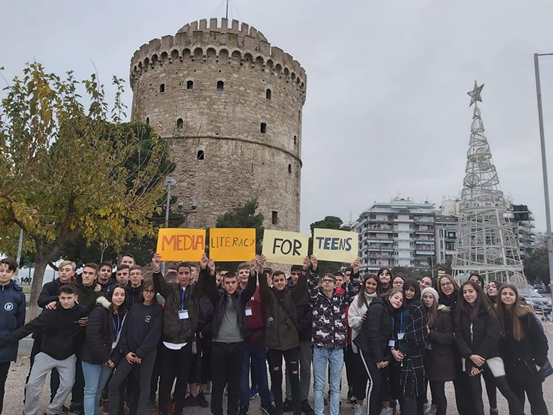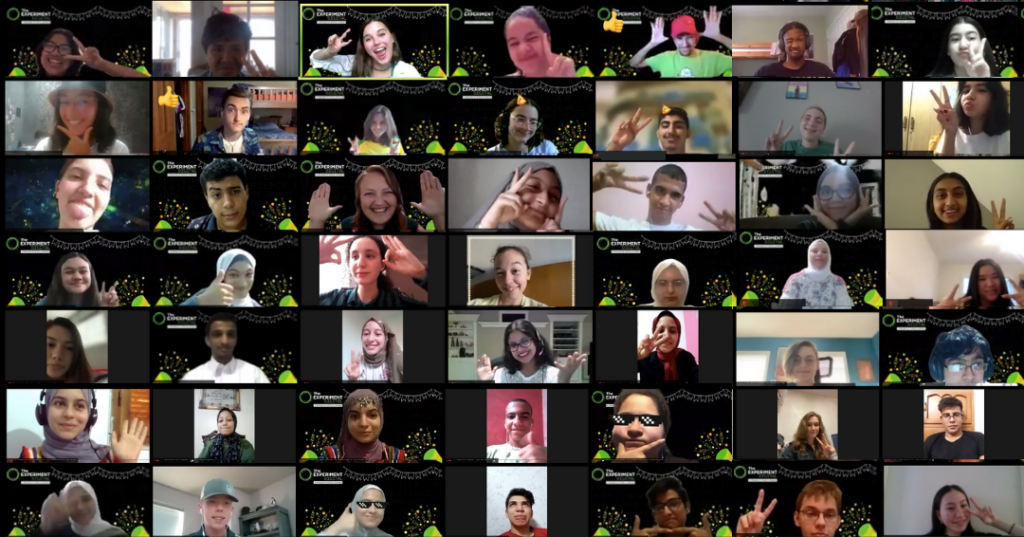-
What We Do
- WHERE WE WORK
-
About Us
 Welcome Message from Carol Jenkins
Welcome Message from Carol JenkinsFor more than 90 years, World Learning has equipped individuals and institutions to address the world’s most pressing problems. We believe that, working together with our partners, we can change this world for the better.
On my travels, I’ve had the opportunity to meet with many of those who have joined us in this mission. In Baghdad, we’ve trained more than 2,300 Iraqi youth who are already giving back at home. In London, our partners in the TAAP Initiative strongly believe that we are all responsible to practice inclusion. And in Vermont, our Experiment in International Living and School for International Training participants prove every day that they have the tools and the determination to change the world.
Please join us in our pursuit of a more peaceful and just world.
- Get Involved
Media Center > Story
Teaching Youth Digital Citizenship is a Must in Today’s World
March 23, 2022

People spend an average of three hours a day online, engaging on social media, viewing photos, posting messages, or reading news. With a simple click, people can easily share information and opinions through memes, posts, tweets, and blogs. While the digital world allows for people to share ideas and experiences across the globe, this transition from the role of passive consumer to content producer has also created a sea of information — and misinformation — that can be hard to navigate, especially for younger audiences.
The result is a pressing need to educate young people on how to engage ethically and safely with online content and use platforms to amplify their voices and inspire action. This includes teaching how to determine news from opinion and fact from fiction. It also includes providing people with the skills and mindset to address the emerging challenges they now face online, including digital security, cyberbullying, and managing an online footprint.
Civic engagement programs must take a more holistic approach to supporting participants, especially youth, to prepare them for the digital world personally, professionally, and civically.
Digital citizenship, defined as the use of technology to learn, create, and participate, provides a strong evidence-based framework to help youth responsibly use online platforms — many of which they already actively use. After being trained on how to be digitally responsible, youth can more effectively spread awareness and encourage collective action, challenge misinformation, and design innovative content that addresses the challenges they face in their communities.
Initial studies, like the one conducted by UNICEF, show that increased digital engagement can be a catalyst for greater civic engagement both on and offline, as it reduces the barrier to personal and political expression. Youth find digital citizenship more appealing as a form of civic engagement than more traditional activities such as voting, volunteering, and town halls. It allows them the agency to create their own civic identity outside more adult-led structures.
Civic engagement programs must take a more holistic approach to supporting participants, especially youth, to prepare them for the digital world personally, professionally, and civically.
At World Learning, we’ve based our digital citizenship lessons on project-based learning and human-centered design approaches that teach participants how to be responsible online, identify and counter misinformation, and use digital skills to positively impact their communities. We address cyberbullying and hate speech, respectful online communication, and how a person’s digital footprint can impact one’s personal and professional life.
Across our programs in Asia, Latin America and the Caribbean, and the Middle East and Northern Africa regions, we have creatively integrated digital citizenship concepts into existing curriculum.
As the COVID-19 pandemic forced many programs to go online, participants learned to function in a digital world, some for the first time. The result was often two-fold. By teaching both digital citizenship and leadership skills jointly in the Iraqi Young Leaders Exchange Program (IYLEP), participants learned how to responsibly use technology to facilitate community projects and how to leverage the positive aspects that come with online engagement. One group, “Not Numbers,” used new social media techniques to showcase the diversity within Iraq to begin dismantling stereotypes.

Key to success is ensuring that all digital citizenship modules and workshops give participants the technical and financial support to immediately practice the skills. In the Alumni TIES TechCamp Reconnect seminar, funded by the U.S. Department of State’s Bureau of Educational and Cultural Affairs, forty-four participants from 12 countries in Central and South America attended interactive sessions to learn how to counter misinformation and promote responsible digital citizenship. All participants were then eligible for small grants to shape projects that taught the information to peers in their home communities.
The result was a powerful amplification of skills: an online platform on media literacy to support Venezuelan migrant women in Peru; virtual and in-person media literacy workshops for high school students and teachers in Brazil and Venezuela; online workshops in financial media literacy for youth in Argentina and Guatemala; online training to reduce misinformation and promote democratic leadership for young leaders in Venezuela; and a conference focused on understanding media literacy through photography at Lehigh University in the United States.
Our digital citizenship modules, created in partnership with Facebook in 2018, also provide activists with the critical skills to safely connect with others and advocate online, even when living under a repressive regime. Following a recent coup, World Learning witnessed young people streaming live videos and sharing photos to raise awareness of human rights violations. However, they were largely unaware of their digital footprint which could have placed their lives in danger. After taking comprehensive digital trainings, participants found new ways to communicate with fellow activists through secure messaging apps and VPNs, giving them the ability to continue the hard work of promoting democracy and human rights safely and responsibly.
By layering programs with a focus on digital citizenship, organizations can best equip youth with the skills they need to navigate the vast digital universe. By helping youth think critically about information and act responsibly with technology, organizations can take the extra step to foster safe and strong global digital citizens.





